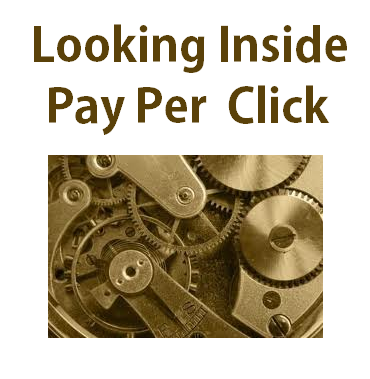Before the revolution of pay per click advertising and Google Adwords back in 2000, many advertisers were still using many traditional methods to advertise with such as banner advertising etc. When PPC first came to the limelight, it would have seemed very 
How Does PPC Work?
PPC works by only making advertisers pay for the clicks on their adverts they get which is where it gets the name pay per click. Therefore, for advertisers, they will create an advert which will be displayed on other websites. Then, the advert gets viewed. The advertiser will only ever pay a penny once their advert gets clicked upon. This is why pay per click advertising is extremely cost efficient for some people. They can manage their budget a lot easier since that the cost of their campaign is directly affected by the number of clicks therefore success.
There’s the simple bit to PPC. After reading it, it will make PPC seem very easy to make money from and use. However, there are many other factors that determine the success of a campaign:
- Keywords – Choosing the wrong keywords in a PPC campaign can potentially ruin it. The keywords of a campaign is what makes it contextual. Seeing that one of pay per click advertising’s benefits is that its contextual, as an advertiser, you need to make sure you choose the right keywords.
- Landing page – Most people see a landing page as just the page which you ‘land on’ from an advert. However, it is far more than that. Have a look at the different types of landing pages available to use and I hope it makes you realise how much a difference a landing page can have.
- CPC – Standing for ‘cost per click’, this is the maximum price you are willing to pay if your advert gets clicked. This is another vital part of a campaign because it is the part which helps you control the pace of your campaign. Choosing a low CPC will provide long term impressions and clicks whereas a high CPC will provide instant traffic but at a price.
- Conversion rate – The conversion rate is the hardest statistic to measure seeing that it is the percentage of users which provide a successful conversion be that buying a product or looking at a webpage. Putting this aside, getting a high conversion rate is crucial to a campaign’s success.
- CTR – Standing for ‘click through rate’, this is the percentage of users that click on your adverts upon seeing them. Although this can be deemed as less important because if it is low, you still won’t have to pay for the impressions: only the clicks. Sometimes in PPC, it is necessary to gain high CTRs for campaigns.
- Time of year – Another part of PPC most advertisers will turn away. As the seasons change, so should your campaign. PPC is forever evolving which means your campaign will be evolving too.
I hope this gives you an idea into how PPC works. On the outside, it looks simple which brings many advertisers in. On the inside, there is a lot of tweaking needing to be done to make sure a campaign runs at its full potential.




